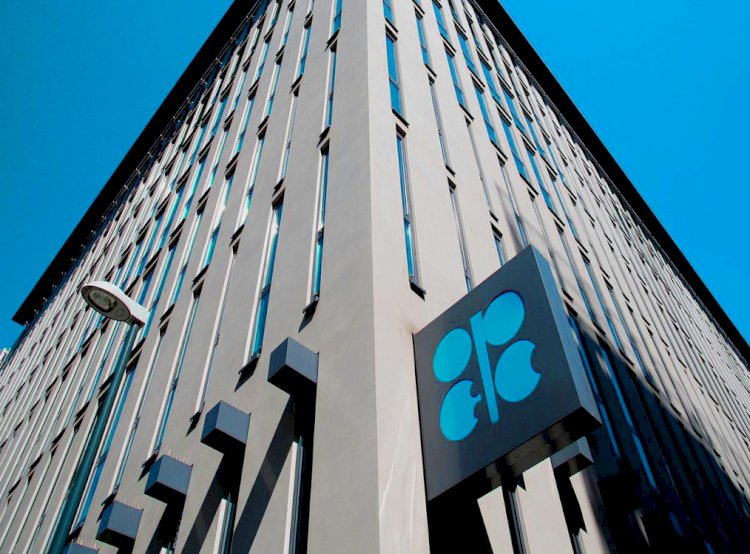OPEC (Organization of the Petroleum Exporting Countries ) + oil producers to cut output by 9.7m barrels
On 12 April 2020, major oil producers led by Saudi Arabia and Russia agreed to slash production by 9.7 million barrels per day as energy markets clashed with the coronavirus pandemic.

The biggest oil deal in history was clinched after three days of hard bargaining, two “virtual” meetings by video conference and a special meeting of G20 energy ministers.
The turning point was a compromise to appease Mexico by OPEC+—the alliance of OPEC members and non-OPEC producers — who had defied pressure to slash production by 400,000 barrels per day. US President Donald Trump has tried to ease Mexico's special terms in which it must cut production by much less than other members of OPEC+.
According to President Donald Trump, The big Oil Deal with OPEC Plus is done, " It will save hundreds of thousands of oil jobs in the U.S. Saudi Arabia's energy minister Prince Abdulaziz bin Salman, who chaired the meeting, said the reductions will be 12.5 million barrels per day due to higher April production from Saudi Arabia, the UAE and Kuwait.
The production cuts will take about 10 % of global oil output off the market from May 1 ,2020. Global demand for crude is down by at least 20 %.
Saudi Aramco will announce its "official sales prices" for crude oil in May 2020 on 14 April 2020, a key indication of how the Kingdom expects the market will go.
Aramco agreed to cut production by 23 % under the OPEC+ agreement, and delegates at the virtual conference said there could be more reductions — about 3.5 million barrels — of other major producers such as the United States, Canada and Norway, whose production is decreasing due to the pandemic.
Kremlin spokesman Dmitry Peskov said after the deal was reached: "The entire world wants this. That's because, when there is such a contract, the global economy would be on the verge of unregulated market instability, energy supplies.'.”
Leonid Fedun, head of one of Russia’s big oil companies Lukoil, said he expected the oil price to remain in the $30-$40 range after the deal. Nigeria’s energy minister, Emmanuel Kachikwu, said he hoped for a rise of at least $15 on oil’s closing price last week of $32.
Oil producers will be waiting anxiously to see how news of the cuts is received by crude markets when they open after a Western holiday weekend and the prolonged OPEC+ and G20 talks.
Matt Stanley, oil broker at Starfuels in Dubai, said: “Whatever way the 10 million barrel cut is finally agreed, it is not enough to balance the markets.”




























